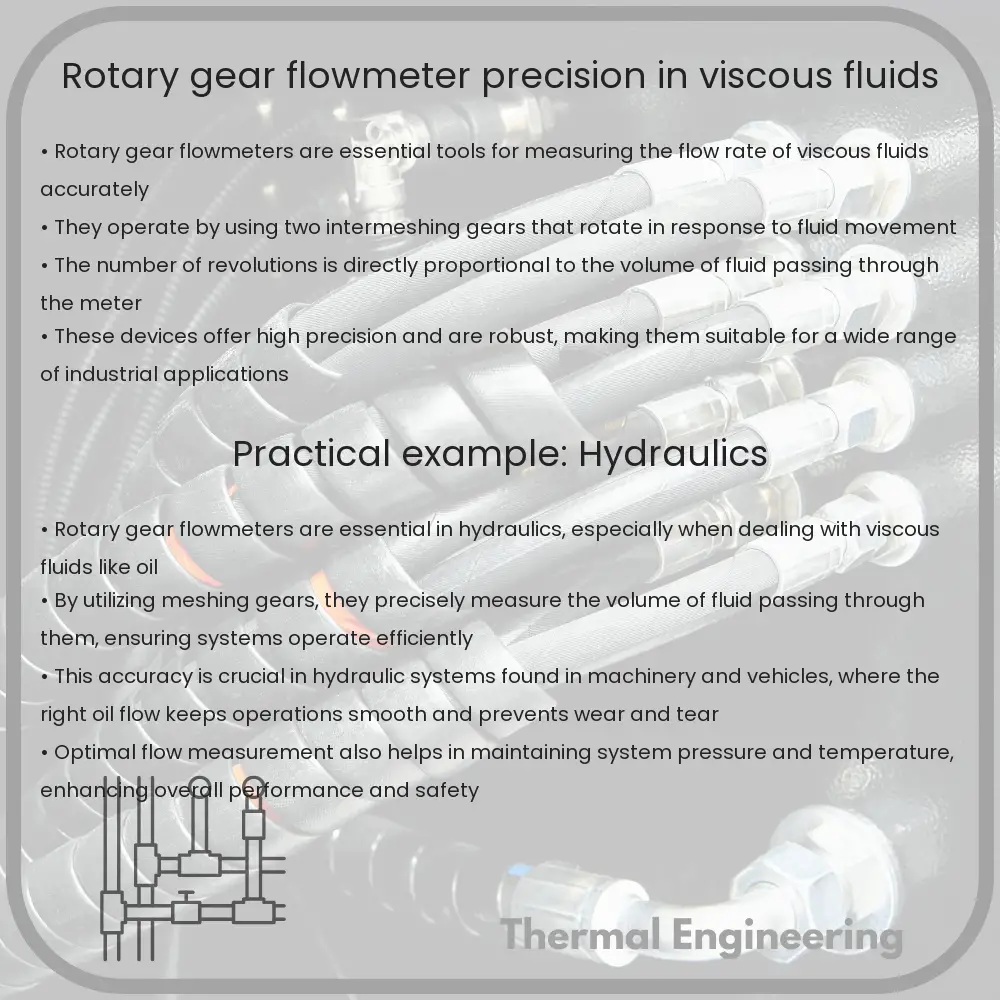Explore how rotary gear flowmeters provide precise measurement of viscous fluids in various industrial applications.

Understanding Rotary Gear Flowmeters: Precision Measurement in Viscous Fluids
Rotary gear flowmeters are indispensable tools in the precise measurement of fluid flow, especially in cases where the fluid has a high viscosity. Often found in a range of industries including chemical, food and beverage, and petroleum, these meters offer reliability and accuracy under conditions which challenge other types of flowmeters. This article delves into the principles of operation of rotary gear flowmeters, their design, and their applications.
Principle of Operation
The basic operation of a rotary gear flowmeter revolves around the use of two intermeshing gears within a precision-machined chamber. As fluid enters the meter, it fills the spaces between the teeth of the gears, causing them to rotate. The movement of these gears is proportional to the volume of the fluid passing through the meter. A sensor detects the gear movements, converting them to a flow rate by counting the rotations.
Key Components and Design
- Body: The body of the meter is typically made from metals such as stainless steel or aluminum, which provide durability and resistance to corrosion.
- Gears: The gears are often crafted from stainless steel or an engineered plastic, depending on the nature of the fluid and the required durability.
- Bearing and Seal: These components are crucial for smooth gear operation and to prevent fluid leakage. They must be selected based on the nature of the fluid and its operating temperature and pressure.
- Sensor: The sensor plays a vital role in translating the physical rotation of the gears into electronic signals that can be quantified and analyzed.
Advantages of Rotary Gear Flowmeters
- Accuracy: These flowmeters are known for their precision in measurement, particularly with viscous fluids, often within ±0.5% of the flow rate.
- Viscosity Range: They perform well across a wide range of viscosities, from thin solvents to thick oils.
- Low Maintenance: The design of rotary gear flowmeters minimizes the need for frequent maintenance.
Applications
Rotary gear flowmeters are versatile and can be used in several applications:
- Chemical Processing: Measurement of chemical dosing where precise quantities of viscous chemicals need to be added accurately.
- Food and Beverage: In the production of items like syrups, oils, and fats where volumetric measurements are crucial.
- Petroleum Industry: For the transfer and refining of crude oil and other viscous petroleum products.
Conclusion
Rotary gear flowmeters are crucial in providing accurate and reliable measurements of viscous fluids across various industrial applications. Their ability to handle a broad spectrum of viscosities and their robust design make them an ideal choice for industries requiring precise fluid handling and measurement. Understanding their operation and benefits helps in selecting the right flowmeter for any specific application, ensuring efficiency and effectiveness in industrial processes.